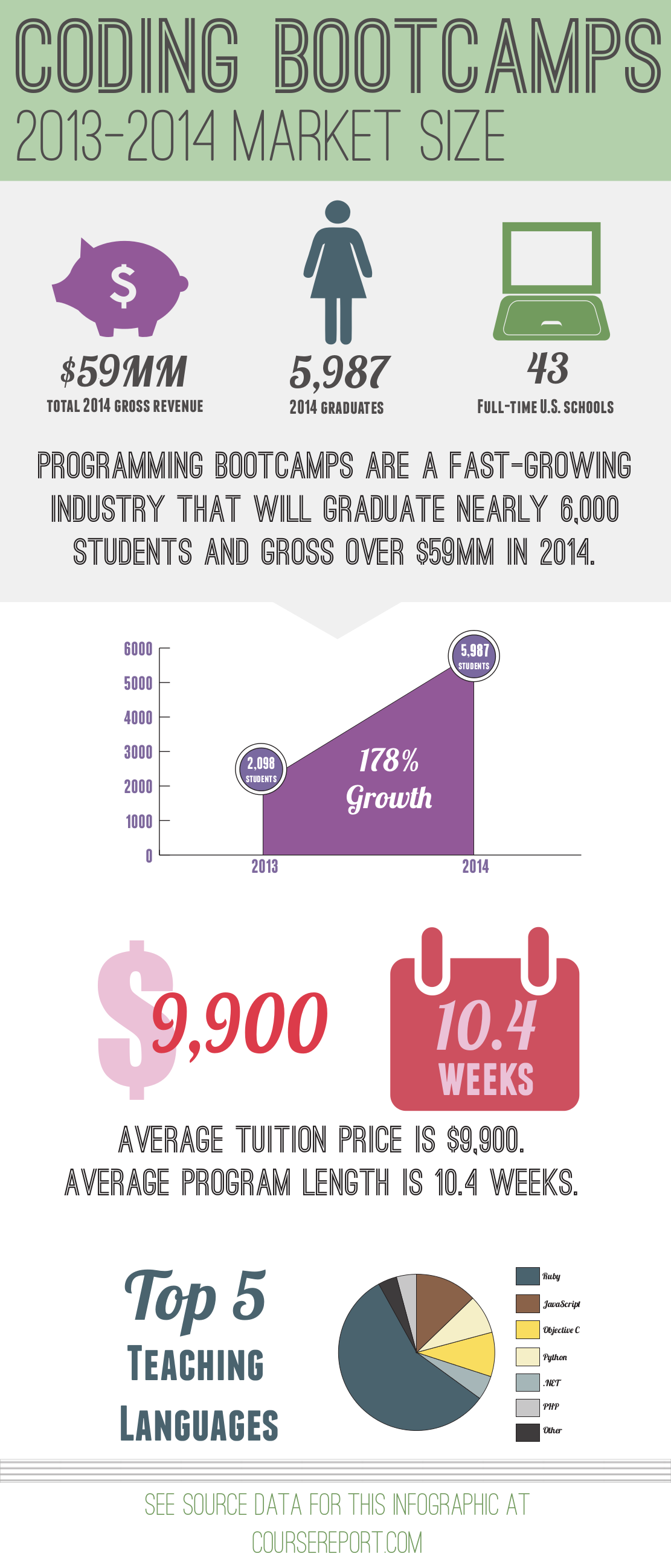Learning to code is the new Pilates. In 2014, U.S. learn-to-code bootcamps will churn out nearly 6,000 entry-level programmers, according to a new report.
That’s almost three times as many graduates as last year, and it’s one-tenth as many graduates as will emerge from undergraduate computer science programs. Also, this figure doesn’t include part-time students of programming learning via online tools like Treehouse and Codecademy.
Looks like we’re ramping up for a bona fide coder surplus, y’all.
On average, full-time code bootcamp grads train for 10 weeks, paying around $10,000 each for their education. The most commonly taught skill is Ruby.
A few thinking technologists have expressed a certain amount of distrust in the learn-to-code movement. After all, these baby devs aren’t generating pristine code. And the more of them there are, the less likely it is that programmers (even really good ones) will be able to demand top-dollar salaries. The real value of great software engineers will remain the same, but the market value of any and all code monkeys will decline. In my opinion, this could trigger the slow deflation of the tech economy.
Or, in the words of Coding Horror’s Jeff Atwood:
The “everyone should learn to code” movement isn’t just wrong because it falsely equates coding with essential life skills like reading, writing, and math. … It assumes that more code in the world is an inherently desirable thing. … It assumes that adding naive, novice, not-even-sure-they-like-this-whole-programming-thing coders to the workforce is a net positive for the world. Please don’t advocate learning to code just for the sake of learning how to code. Or worse, because of the fat paychecks.
(Seriously, you should go read the whole thing.)
Look, more fun facts in pretty colors!


